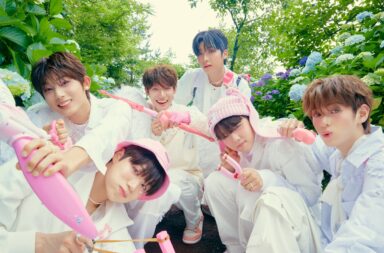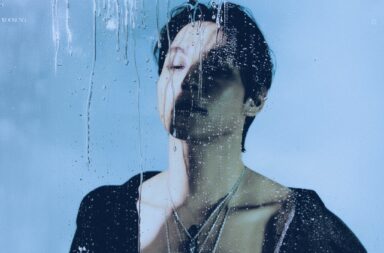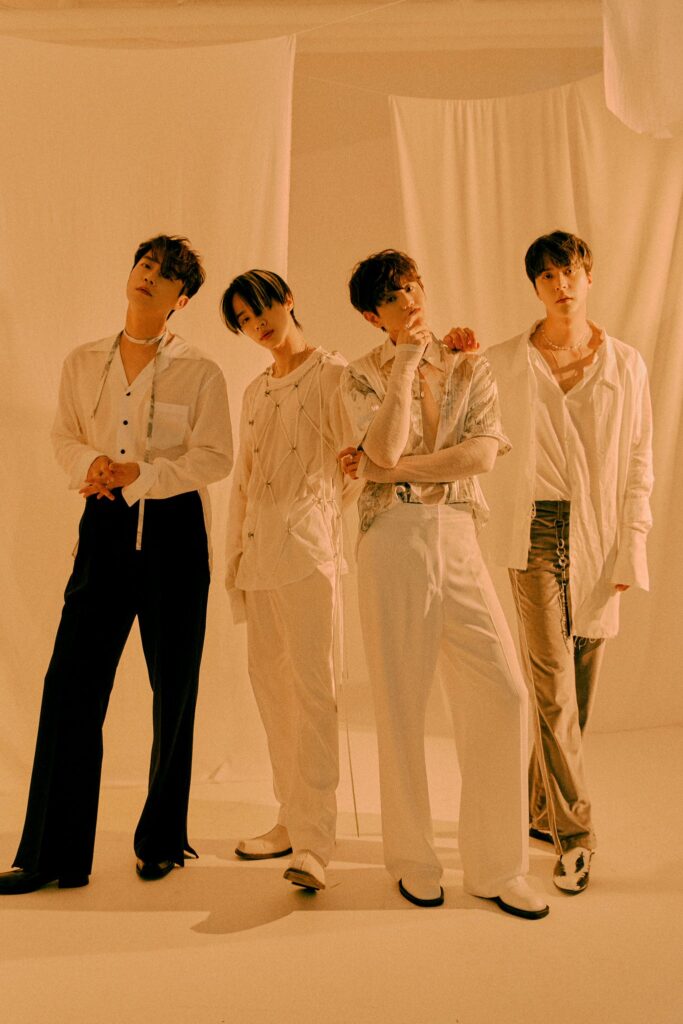
Time moves fast in the K-pop industry. The landscape is ever-changing, with new trends emerging what feels like every day. For a veteran group like Highlight, a return from a three-year hiatus following the members’ military conscriptions was bound to bring with it a sense of whiplash. In their latest release The Blowing, the group retains some of their signature sound while introducing newer elements from today’s K-pop scene and the result, for the most part, is safe at best and disjointed at worst.
With a career spanning nearly 12 years, Highlight know their strengths; perhaps their greatest asset, after being together for over a decade, is their vocal synergy as a group. Their voices blend particularly well, with no one member standing out, and this is befitting of the track because, as a song, “Not the End” is simple. It’s the kind of EDM pop ballad that will always find success among the masses since it’s an easy listen. Aside from its synth-heavy pop sound, the track is powered by personal sentiment: as covered in our review of the MV, “Not the End” expresses Highlight’s desires to continue their journey as a group and to reconnect with their fans. Member Gikwang also puts a personal touch on the song with his involvement in the production. For these reasons, it’s easy to see why “Not the End” was chosen as the title track, and while it is an enjoyable song, it’s not the kind of release likely to be a staple in the group’s career.
B-sides “Hey yeah” and “Wave” follow similar equations for success, but the results for each are drastically different. “Hey yeah” is a punchy track that stands in stark contrast to the rest of the predominantly soft-pop album, harkening back to some of the group’s more popular dance numbers. Fittingly, “Hey yeah” shows Highlight’s more mature side, relying on its sexy tone to grip listeners, aided by flirtatious whistling, a sultry electric guitar line, and an anthemic chorus. Like “Not the End,” it’s the kind of song that’s hard to not like; after all, sexy is always “in” in K-pop, and the more modern twist on “Hey yeah” is one that suits Highlight well. On the other hand, “Wave,” while sharing the same sentimental touch as “Not the End,” falls short when it comes to production. The lyrics are tender, comparing being in love to getting your feet wet in the ocean, and offers some of the brightest vocal points for the members throughout the album, particularly Dongwoon and Yoseob in the chorus. Where the vocals succeed, however, the production lacks, with the future bass feel of the track at odds with the members’ voices in a way that unfortunately leaves something to be desired.
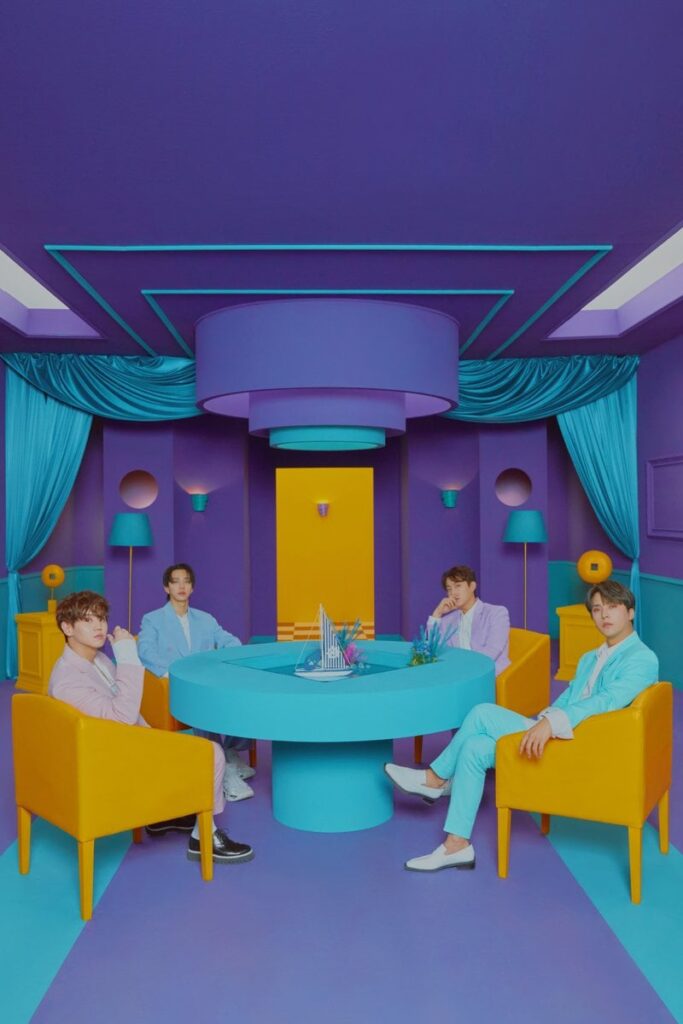
This leads to the album’s greatest struggle: while experimentation is a great thing (and necessary to survive in the cutthroat world of K-pop), experimentation shouldn’t happen just for experimentation’s sake. Such is the case for both “Sorry” and “Surf.” B-side “Sorry” sounds like a second generation song set to a fourth generation backing track. While this makes for an interesting dichotomy, the song lacks any memorable moments. Meanwhile, “Surf” suffers from weird chord progressions that make the song feel off-kilter, sounding creepy at some parts and playful at others. Written and co-composed by Dongwoon, the song is touching at its core, but the endearing lyrics do little to save the instrumental.
The stars finally align with the penultimate song on the album, “Disconnected.” Featuring dreamlike synths to give the song that modern feel, the instrumental has very few layers and perfectly balances the vocals. Like “Sorry,” there’s very little build, but whereas this detracts from “Sorry,” the emptiness in “Disconnected” furthers the theme of separation in the song. Compositionally, the music takes several unexpected melodic turns, giving the song a surprising complexity underneath its simplistic instrumentation. And it’s for this reason that “Disconnected” is the easy standout on the album.
Highlight are aware the K-pop climate is evolving. In a press conference for The Blowing, Yoseob and Doojoon discussed how trends have changed in their three year absence, such as the concept of “ending fairies” on music shows. And they’re not the only second generation idols that feel out of their depth: Shinee went viral for making their ending sequences as tongue-in-cheek as possible during “Don’t Call Me” promotions. Furthermore, in the past year alone, artists have had to place a heavier focus on online content in an effort to connect with fans amidst the Covid-19 pandemic — something that Highlight admit makes them feel sorry for their junior artists, some of whom have yet to perform in front of their fans. Though the members of Highlight are thankful to have had plenty of time with their own fans throughout the years, it’s regrettable that their triumphant return to the industry is a rather lonely one. On top of these outside factors, there’s also former member Junhyung’s departure following his involvement in the Burning Sun scandal. As a rapper, his voice was responsible for some of Highlight’s signature sound, and there’s no doubt that the remaining four members have had to adapt to his absence.
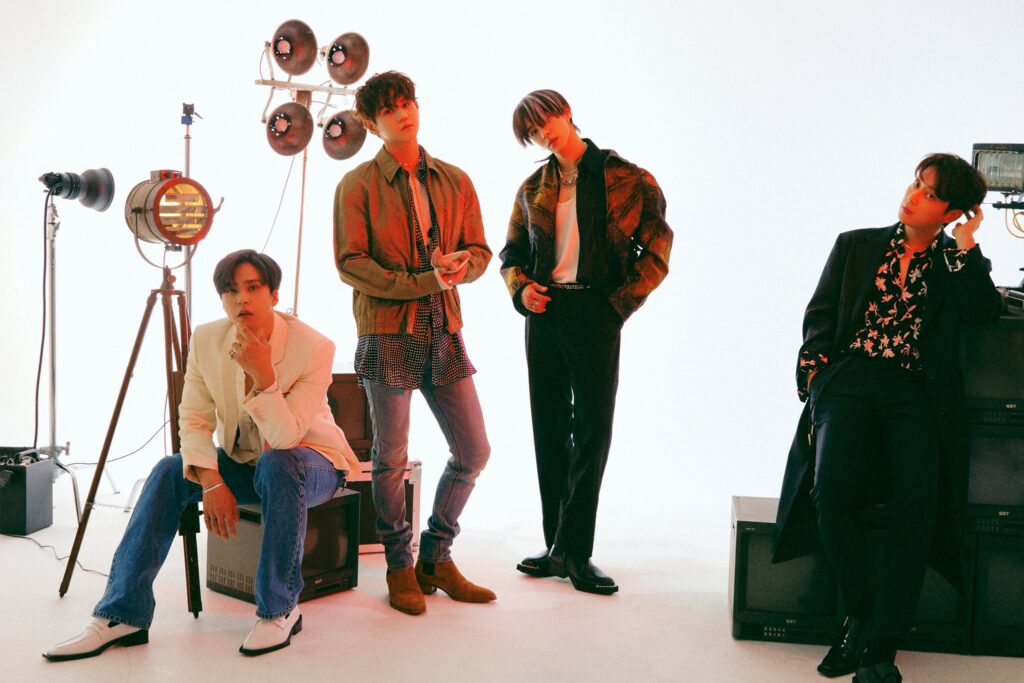
Luckily, it doesn’t seem like any of these hurdles have stood in the way of the group’s success. In fact, the only thing that seems to truly be standing in the way of Highlight is the group themselves, at least in the way that they’re trying to fit the mold of a 2021 K-pop star. The Blowing is still an overall great listen, but the album shines brightest when Highlight don’t try to be something they aren’t. As they struggle to find the balance between old and new and to navigate the ever-changing tides of today’s K-pop, one can only hope that their next album will see a more cohesive release for the group.
